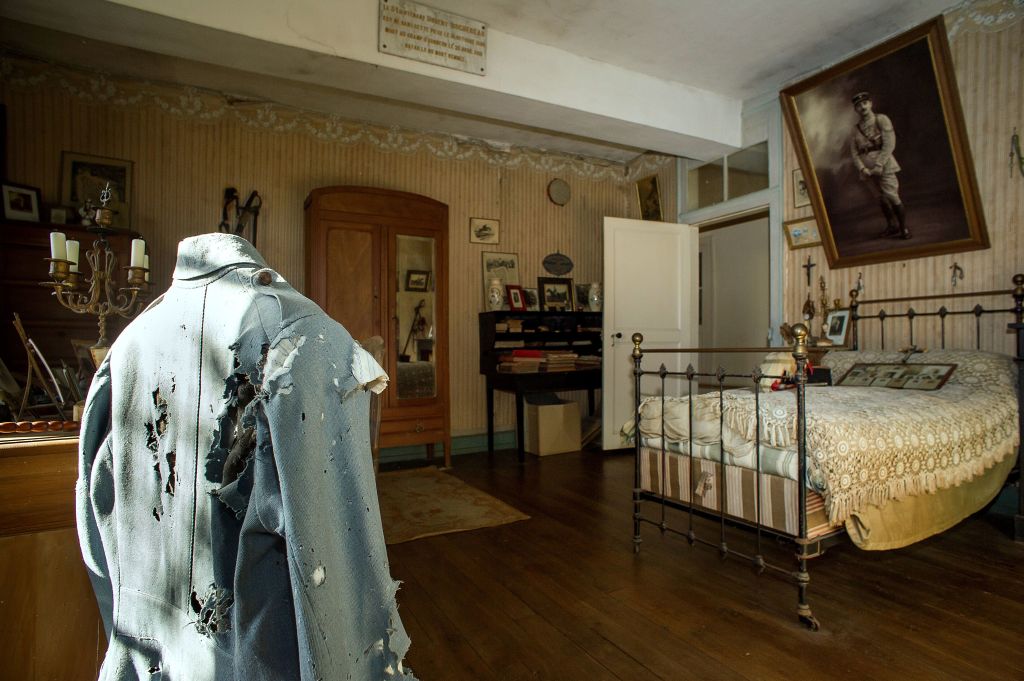Second Lieutenant Hubert Guy Pierre Alphonse Rochereau, the warrior son of a distinguished military family, whose ancestors had served under Napoleon, it ended for him in an English field ambulance on April 26th, 1918.
The accomplished graduate of the elite Saint-Cyr Military Academy had been wounded while engaged in fierce fighting for the village of Lokers, in Flanders, Belgium.
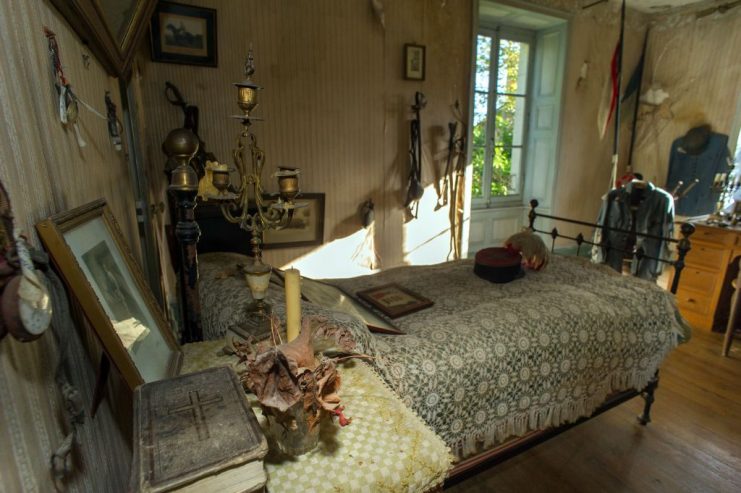
While his parents were informed of his death his body went missing for four years before it was finally discovered in a quiet corner of a British war cemetery in 1922.
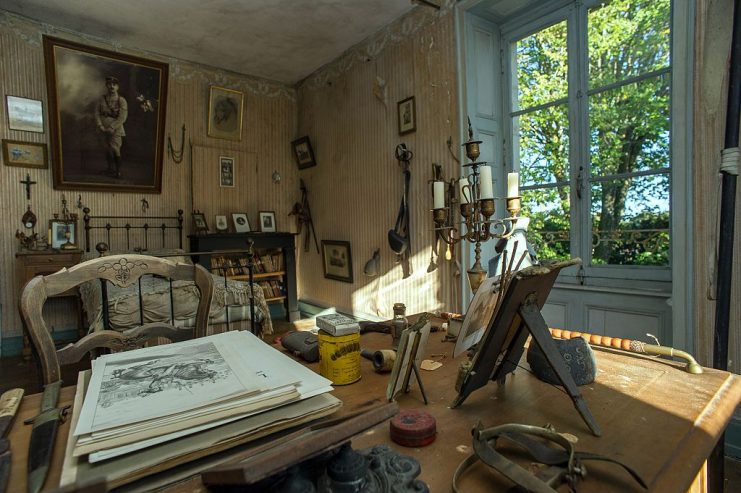
Rochereau was later reinterred in the graveyard in his home village of Bélâbre, East of Poitiers in the Brenne National Park.
His parents then took the decision to leave his room in their house exactly as it had been when he left to go to war.
Rochereau was awarded the Croix de Guerre and the Legion d’Honneur for his valor in battle and these were placed carefully on the lace counterpane and then the room was bricked up and sealed as a permanent memorial to the young soldier.
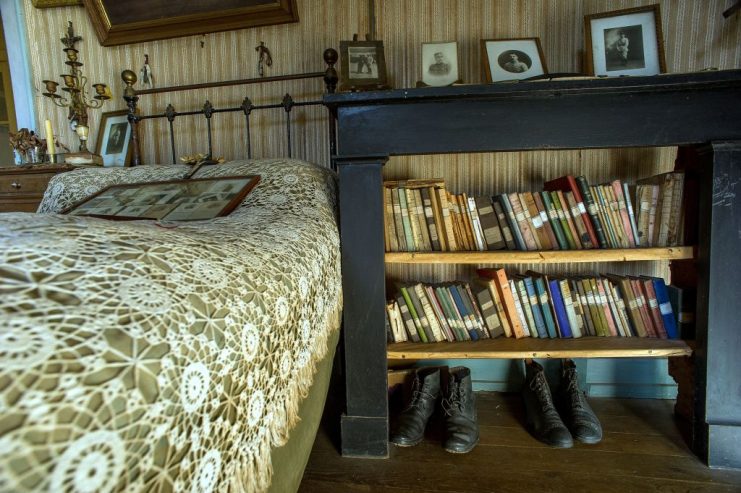
A century later and the current owners of the property decided to remove the bricks from the doorway at the end of the upstairs corridor, intrigued by what may lay beyond.
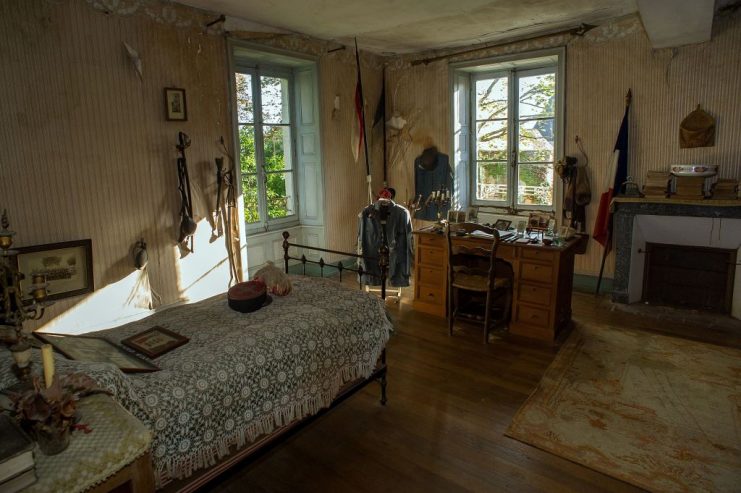
What they found has shocked and delighted historians “it’s as if time has stood still,” said the local Mayor Laurent Laroche.
Rochereau’s schoolbooks sit on shelves alongside military manuals. His pipe filled and ready to light sits on his desk alongside two Gold Flake cigarettes, his pistols, a knife, notebook and keys.
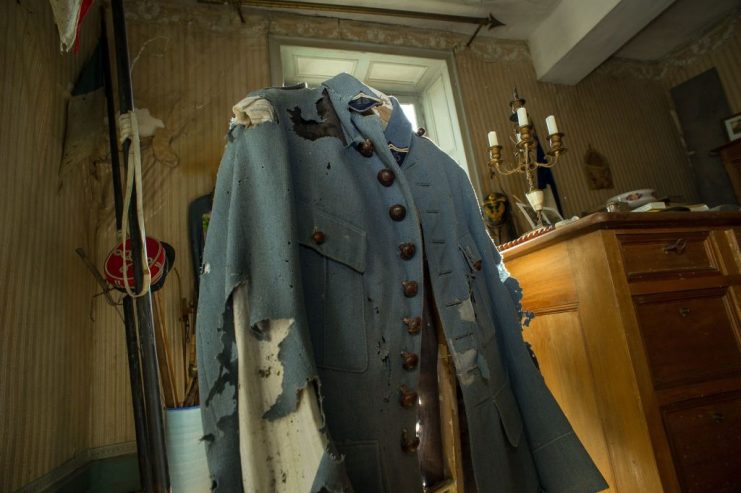
In the corner is his military jacket and feathered dress helmet, beneath his bookcase two pairs of boots wait, polished and ready to go.
On the desk is a small vial of grey dirt with a handwritten label that describes the contents as, “the earth of Flanders in which our dear child fell, and which kept his remains for four years.”
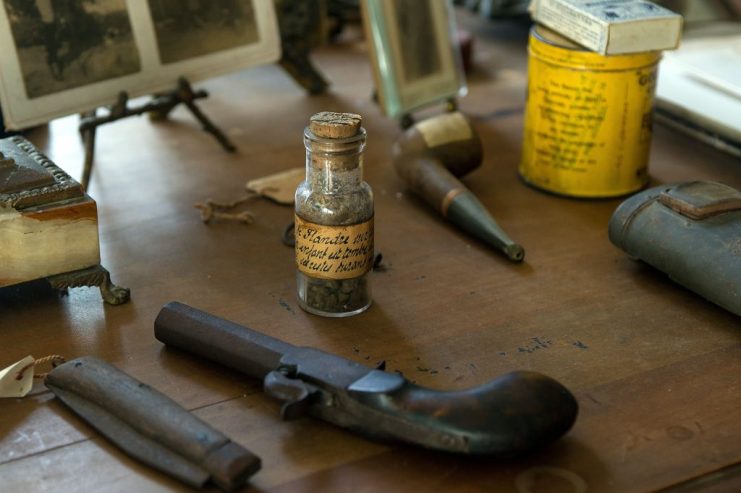
The Mayor of Bélâbre said of the find, “I imagine it’s how the explorers felt when they opened the first pyramid or ancient tomb.”
The room has lain untouched since 1922 and there are no plans to change anything following the opening of the room.
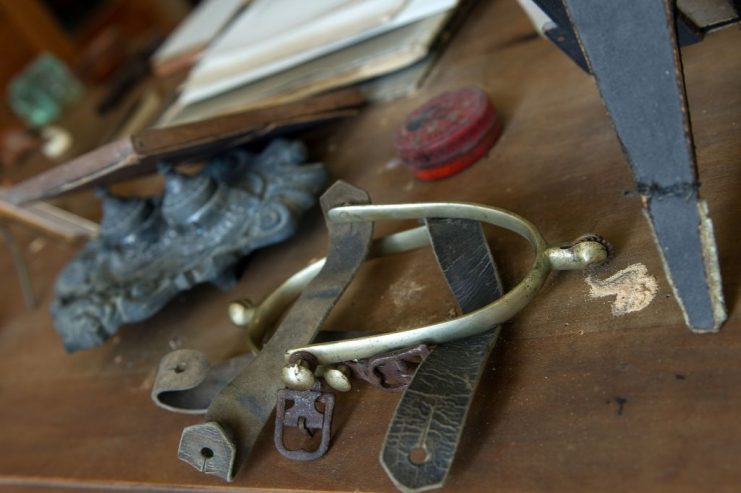
There are concerns over the curation and preservation of the room and the Mayor is keen to find a benefactor who might be persuaded to take on the responsibility of the project.
It might have been less of an issue had the house not changed hands on a number of occasions following the original sealing of the room.
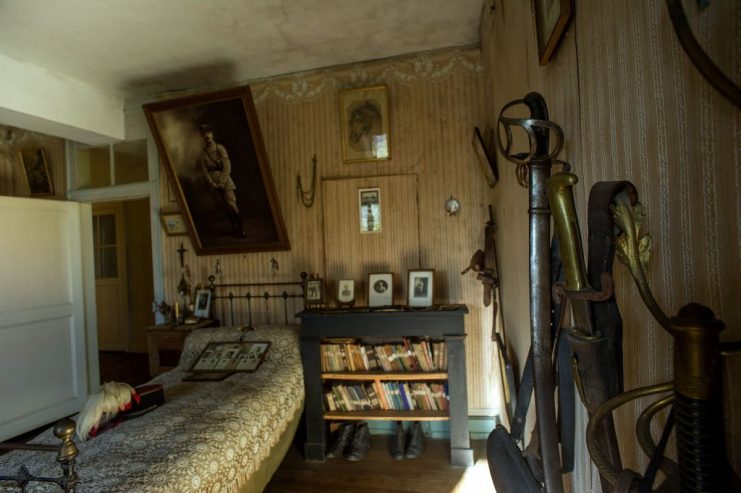
In 1935 the Rochereaus left the house to a military associate, General Eugene Bridoux on condition that the room remain undisturbed for five-hundred years.
General Bridoux agreed to these terms however he lost control of his assets after World War Two due to his direct responsibility for the transportation of French Jews to Nazi concentration camps while he was a minister in the Vichy government.
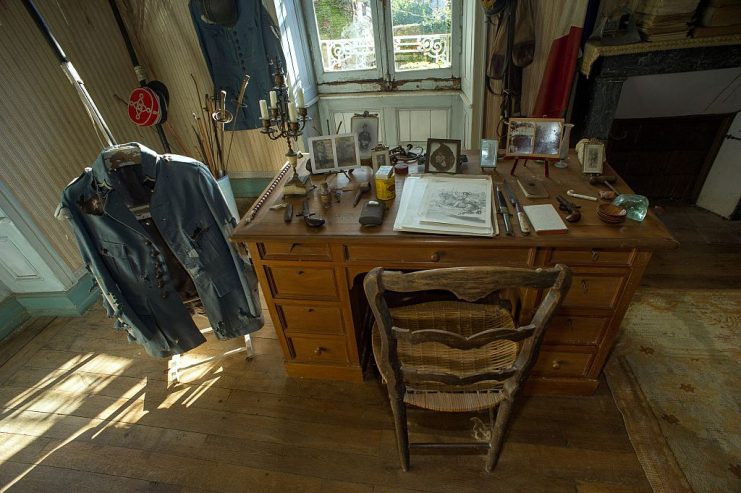
During the Allied liberation of France Bridoux escaped to Germany and then, as Allied forces crossed the Rhine into Germany, the General was able to flee to Franco’s Spain.
He was condemned to death in his absence by the French government and eventually died in exile in 1955.
The house in Bélâbre was confiscated by the authorities as it was the property of a collaborator and rented out to a family of solicitors until the 1950s when General Bridoux’s granddaughter reclaimed the house.
The current custodian of the house, Daniel Fabre, husband of the General’s granddaughter has said he respects the wishes of the Rochereau’s and intends to honour the promise in the original contract of sale, even though it has no basis in French law.
Have You Heard of The Special Forces Ghost Car That Operated in Bosnia
He confirmed it was out of a sense of respect for the dead soldier, the Dragoon who died for his country more than one hundred years ago.
